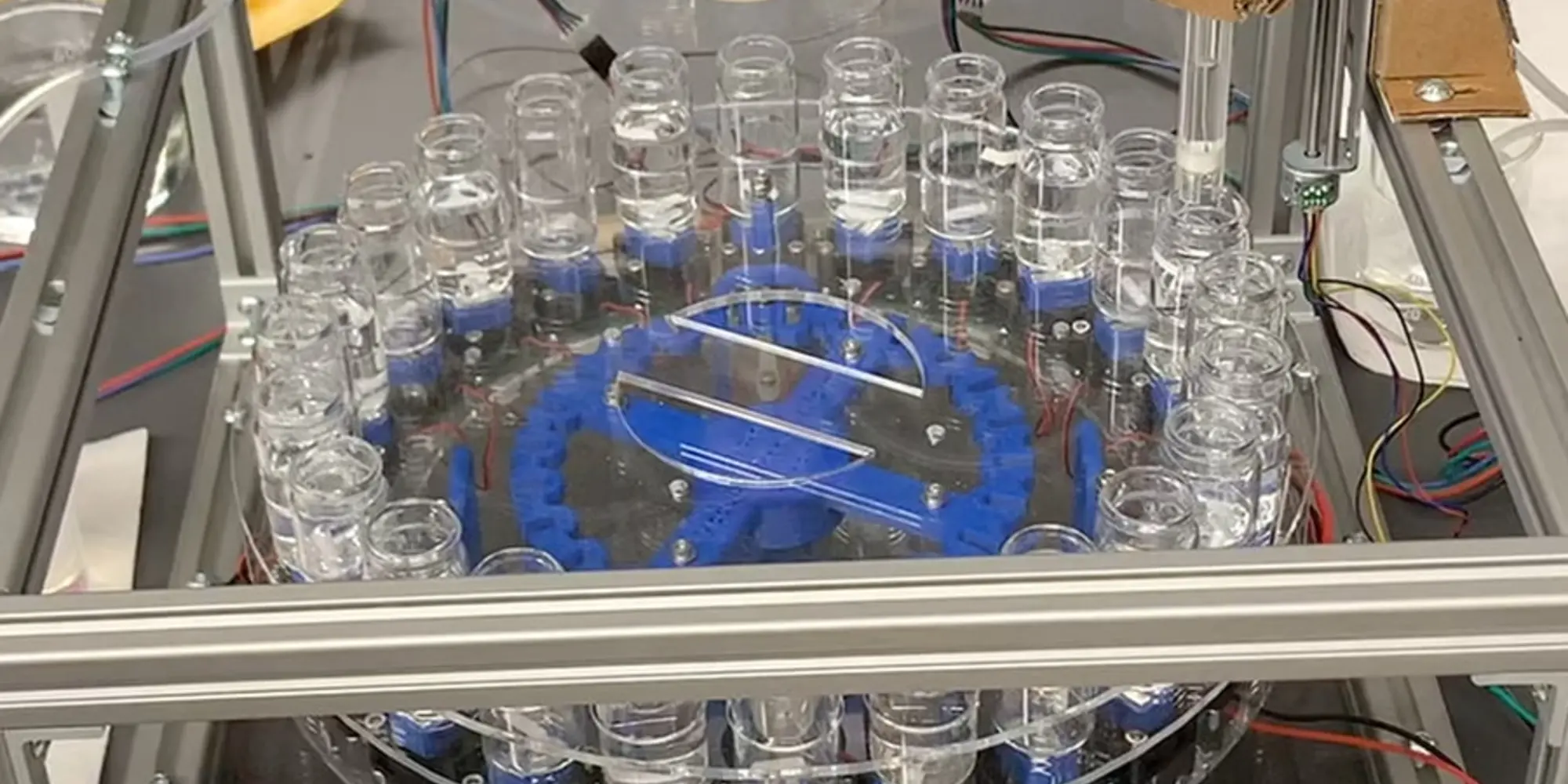
Students' Ingenuity Automates Scientific Research
Media Inquiries
In a factory producing medical equipment, like the linear accelerators used in radiation therapy, a slew of automated tools drive production. However, in a lab researching gold nanoparticles' ability to enhance radiation therapy, manual effort remains prevalent. Carnegie Mellon University students Morgan Chen and Ari Fiorino are working to transform this by using robots to automate and modernize scientific research.
Chen, a mechanical engineering(opens in new window) Ph.D. student, has made a robot that is able to conduct basic chemistry experiments from start to finish without human aide. The robot's modular design comes from one created by Daniel Salley from the Cronin Group at the University of Glasgow and allows researchers to easily manipulate the hardware to set it up for various experiments.
Chen is working with Reeja Jayan, associate professor of mechanical engineering, in collaboration with the Air Force Research Laboratory (AFRL) through the Data-Driven Discovery of Optimized Multifunctional Material System (D3OM2S)�Center of Excellence(opens in new window).
While automating chemistry with machine learning is not a new interest, the COVID-19 pandemic(opens in new window) expedited the need as researchers were required to work from their labs remotely. So, in the fall of 2020, without access to advanced material synthesis equipment available in a lab, Chen began to build. By using commercial parts available online, and even making use of the cardboard boxes the parts came in, he was able to get the robot up and running. Ari Fiorino, a machine learning master's student, played a major role in constructing the algorithms implemented in the robot.
Up until now, cost and specificity were the primary obstacles in laboratory automation. But with Chen's resourcefulness and penchant for modular design, robots like this could be available in laboratories around the world. "If I can build this during a pandemic," said Chen, "then it's definitely affordable and doable by the average scientist."
Autonomy will revolutionize research. The Air Force's Autonomous Research System (ARES) has been able to complete upwards of 100 times the number of experiments per day that a human researcher can conduct. Not only will automation save laboratories time and money, but it will allow researchers to spend less time on tedious experiments and more time applying their findings to real-world problems.
"Robots with the ability to handle monotonous benchmark research that is inherent in material science will be a tool to complement the human researcher and free up their time to focus on more high-level, creative tasks," Chen said.
Jayan's group is using the robot to further familiarize themselves with and contribute to the movement towards autonomous experimentation as part of the AFRL center. It will also be used to test the ARFL's ARES operating system. Currently, the robot has successfully completed tasking ranging from pH optimization to synthesizing gold nanoparticles, but Chen hopes to see it autonomously conceive and run "intelligent" experiments more relevant to his groups' research goals such as understanding how exposure to electromagnetic radiation affects materials on an atomic scale. The overall goal is to discover away-from-equilibrium materials with properties unattainable under normal processing conditions. Morgan was recognized as a 2021 National Science Foundation (NSF) Graduate Research Fellow for his work on this project.